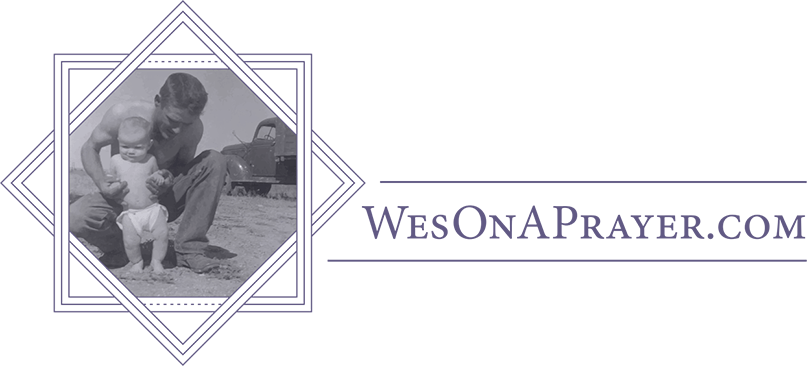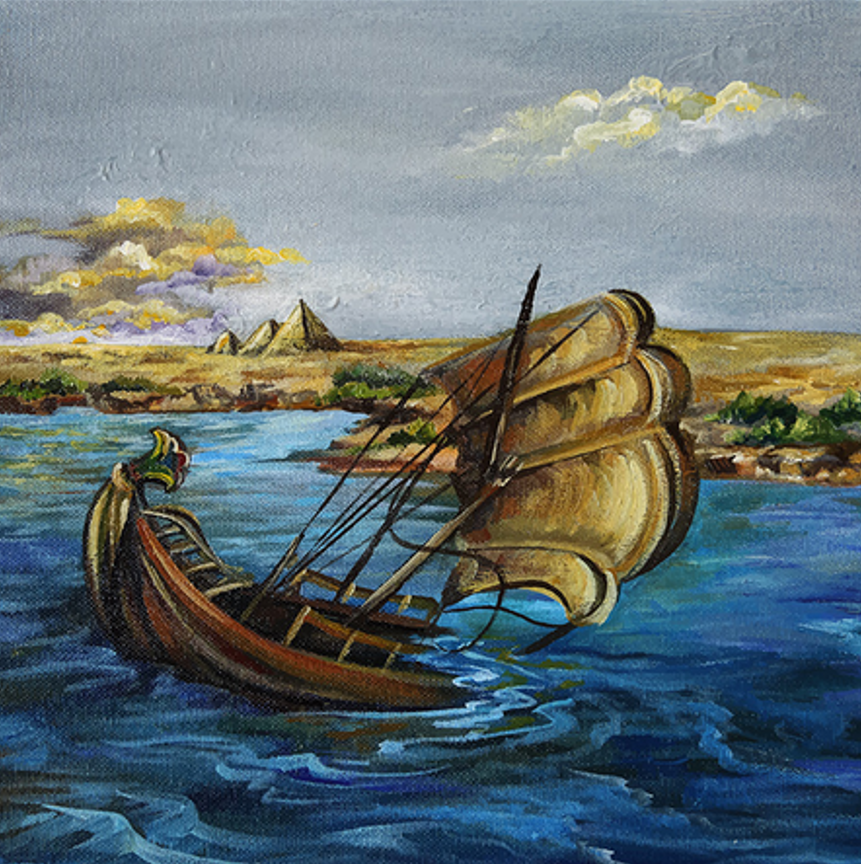We Don’t Have To Drown Thanks To God’s Grace
Bible characters were real people with real baggage. Their stories are not about superheroes but people like us who God used while they were still in a state of brokenness. It may be difficult for us to absorb just how broken they were by casually listening to their stories or reading about them in a sermon or a class. It is one thing to know a story intellectually. Feeling a story is quite another thing. It is easier for us to feel a story of brokenness after truly realizing our own. Our lives may appear as shipwrecks, but we don’t have to drown, thanks to God’s grace. I am writing a book that concentrates on the stories told in the Bible so that we can navigate beyond our brokenness.
I’ve been working on it for four years. Yes, I write slowly. Near the beginning, I write of my thoughts on a hot day in a cotton field as a child. I spent a significant amount of time removing weeds from the cotton fields on our farm. I often thought of Adam and Eve when my garden hoe was in my hand and the callouses formed on my palms. When God cursed Adam, he did so by cursing the ground and making the dirt susceptible to the growth of thorns and thistles—or in my mind, weeds. God told Adam, “by the sweat of your brow you will eat your food until you return to the ground since from it you were taken; for dust you are and to dust you will return.” (Genesis 3:19)
We all get to make a choice.
I would look down at the soil in the cotton patch and guide my garden tool to chop out the Johnson Grass and leave the cotton plants, sweat rolling off my brow, and my thoughts were of Adam: “Why on earth did you eat that fruit? I wouldn’t have to be in this hot cotton patch if you hadn’t listened to your wife!” Adam knew it was wrong. He blamed his wife for being deceived, but he knew it was wrong and did it anyway. So why was I suffering for their sin in the middle of a cotton patch centuries later? Romans 5:12–21 explains it in detail. A verse in the fifteenth chapter of 1 Corinthians briefly sheds some light on it. 1 Corinthians 15:22 reads: “For as in Adam all die, so in Christ all will be made alive.”
Concerning Adam and Eve’s son killing their other son, I cannot even imagine the pain they went through at the loss of their son Abel. I know the heartache of losing a loved one, but the loss of a child is much more painful. What made it worse was that this loss came at the hands of another one of their children. The grief, the shame, the disappointment would seem unbearable. Adam and Eve may have even felt guilty, despite the fact they didn’t commit the murder. As parents, we often beat ourselves up for our children’s mistakes. Surely they wondered where they had gone wrong as parents. Indeed this may have made them feel as bad as their eviction from paradise—or even worse. Where could they find solace?
God doesn’t have any grandchildren.
I can only think of one place. God had created Adam and Eve, and God was not to blame for their disobedience. God had clearly instructed them, yet they had made a choice. Likewise, Cain was instructed and warned by God no less. Yet Cain made a choice. I think it is important to note that we all get to make a choice, and the consequences are between God and us. Sure, we may not do our best for our children, and certainly, they will blame us often, but Cain’s decision wasn’t between him and his parents. His decision fatally impacted his brother but was ultimately a decision between him and God. God doesn’t have any grandchildren. I believe Adam and Eve knew that, and we should know it too. We must not blame ourselves when our children mess up. Likewise, we must not blame our parents for our mistakes.
Another Bible story about choices
There was a beautiful woman, and like many women, she probably didn’t believe she was pretty. But the Scriptures read that she was very beautiful. She was the daughter of a warrior and the wife of a warrior. I am sure that means a lot to soldiers, seamen, and airmen families. She undoubtedly knew what it felt like to be left behind while her father and husband were deployed. She may have known all too well how the men in her life were changed when they returned. The men in her life encountered the enemy face to face in brutal hand-to-hand combat on numerous occasions.
Under cover of darkness and above the streets of Jerusalem, there is no telling what her thoughts were as she poured water over herself. Certainly, Bathsheba could not have known how drastically her life was about to change. I have heard it was not unusual for people to bathe on their roofs. Yet, there is no evidence she even knew that, as she washed and looked across Jerusalem, someone was above her, also looking across Jerusalem, and had spotted her nude body in the twilight.
The two paragraphs above are excerpts from the tenth chapter of my book. Again, David and Bathsheba had to pay for the consequences of their choices. But they didn’t have to drown in their sorrow. We don’t have to drown in our sorrow either.
A broken and contrite heart you God will not despise.
After being confronted by the prophet Nathan, David wrote what we know as Psalm 51. An excerpt from the Psalm reads:
For I know my transgressions, and my sin is always before me.
Against you, you only, have I sinned and done what is evil in your sight;
So you are right in your verdict and justified when you judge.
Surely I was sinful at birth, sinful from the time my mother conceived me.
Yet you desired faithfulness even in the womb; you taught me wisdom in that secret place.
A broken spirit
Verse 17 of Psalm 51 reads:
My sacrifice, O God, is a broken spirit; a broken and contrite heart you, God, will not despise. (Emphasis added to denote verse 17) Verse 17 speaks to me. If God doesn’t despise someone, then neither should we. Furthermore, when the Apostle Matthew describes the genealogy of Jesus, Bathsheba is listed.
The story of Adam and Eve and the story of David and Bathsheba represent only two of the fourteen chapters in my upcoming book. The Bible is full of colossal tragedies, but those stories of people that failed show us that we don’t have to drown when we fail. Sometimes the healing and rescue occur much later in our lives. Sure, it is easy to see that we shipwrecked our life, and it doesn’t seem fair. But there is a grander plan at work that we often are not seeing and may never see on this side of the grave. So keep telling yourself that you don’t have to drown.
I appreciate your patience in waiting for my second book to be published. I have submitted it to a production editor once and have almost completed all of the suggested edits. Please pray I can finally get this book published so I can begin on a third book.

